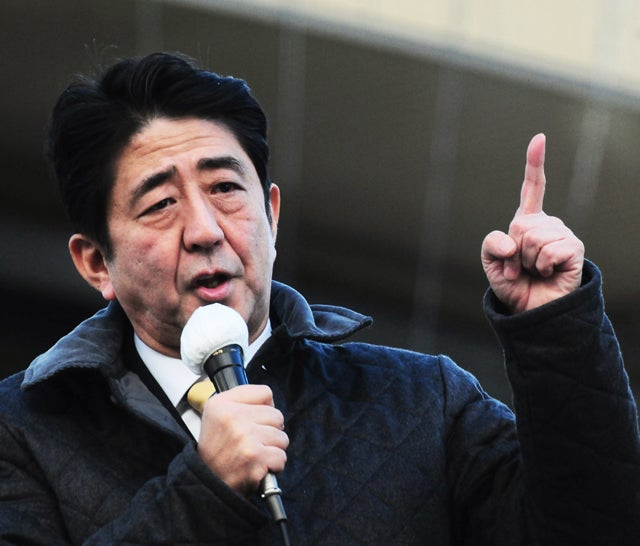Japan’s incoming prime minister, Shinzo Abe, has an unenviable task. While Mr. Abe may prove to be exactly what the country needs in terms of foreign policy, his economic promises mirror the policies that have mired Japan in two decades of stagnation.
Mr. Abe has made headlines promising more aggressive public spending and “unlimited” money supply increases to seek inflation. Taken together, there is no chance these will work.
The public spending is described in the press as “Keynesian,” but Keynes would probably be mortified. Keynes advised that the government should act during a crisis—Japan’s financial bubble popped 22 years ago.
It is worse than that. The government is now the problem: Public borrowing dominates the Japanese economy. The primary activity is citizens saving money because they think the government is ruining the economy, and the government confirming their suspicions by borrowing gigantic amounts that Mr. Abe only wants to increase.
For two decades, Japan has acted as if fiscal “stimulus” must eventually work, running up the biggest peacetime debt in history at over twice the size of annual output. The result? Japanese gross domestic product (GDP) in 2011 was no larger than in 1992. Mr. Abe wants to do more of the same, and he will receive more of the same in return.
On its own, expansive monetary policy is a bit more promising, but only a bit. Japan has been unsuccessfully fighting deflation for years—hoping to undermine the value of savings and push people to spend. Mr. Abe wants to be aggressive; setting a target of 2 percent inflation.
One flaw in this approach is defining inflation. If enough money is pumped into the system, the price of some goods or assets will rise, but the most likely result is that land and/or energy prices will rise and deflation will persist everywhere else. Overall inflation may ensue, but it is hard to see how that would help.
Meanwhile, the government will be fighting itself. As more funds are pumped into the system, people will eye Mr. Abe’s unwise plans and the horrific fiscal situation and save the extra money, as they have been for 20 years. Businesses will use the additional capital to move even more activities offshore, as they also have been doing for almost 20 years.
Mr. Abe’s monetary policy might work to some extent if he changes fiscal policy dramatically. But as long as Tokyo makes government borrowing the core of the economy, Japanese families and businesses will rightly view the economy as dangerously flawed.

























